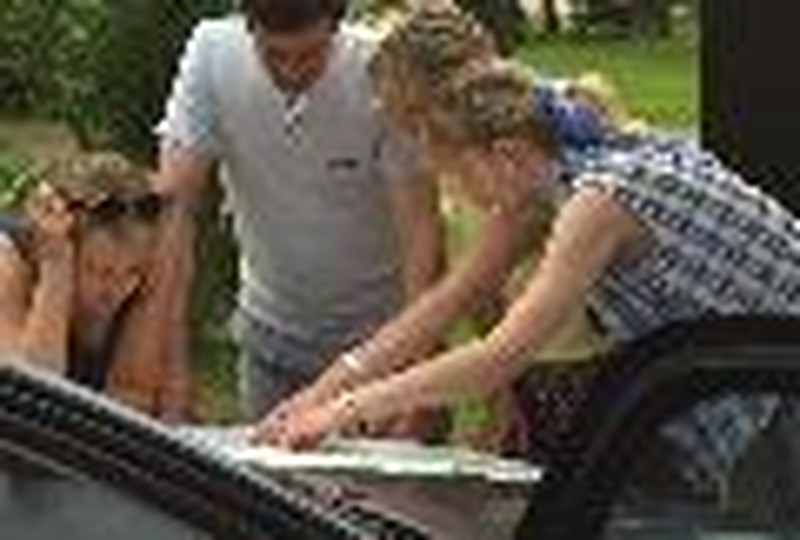Learning, Family Style - Part 1
- David and Laurie Callihan Authors
- Updated Feb 14, 2003

Any family that has taken the step to home school is well on their way to providing their child a great education; but beyond that, homeschooling can be the means for preserving and enhancing a strong family life.
Some of you may be aware of our motto: "Making learning an all-the-time, whole-family, life-long endeavor." Our motto is intended to encourage parents (and students) to think and go against the grain. We are attempting to provide a stark contrast to the way things are done in modern institutional schools. When we speak at homeschool events, we many times ask our audience how many of the parents in attendance were homeschooled. Rarely do we get more than a handful of respondents. In many cases, there are none. In fact, we only remember two actual parents over 35 who were homeschooled all through their childhood, and both of these dads were children of missionaries. Most of us as homeschooling parents today attended institutional (public or private) schools for our education. So for us it is often difficult to think about education looking any differently than the pre-school, K-12, then college-to-career progression.
Yet, while this progression is the norm in our society today, we rather strongly believe that it's not necessarily the most efficient process of education. It certainly doesn't enhance the family in any way. It also is not the best way for children to learn socialization (contrary to popular belief).
Learning Spiral or Learning Tree?
It is our humble opinion that participation together in family education is a much better model of learning. What evidence do we have of this? Well, first, there's our own experience of raising five children who love learning and use their minds to love God. Then there's the fact that God designed the family around the father and mother. (Understandably there are homes with only one parent-in this case, God provides added grace. The model doesn't change. Why do you think the Bible says that God hates divorce?)
Psalm 128 expresses this model of family when it says that "your wife will be like a fruitful vine. Your children like olive branches around your table. Behold that thus shall the man be blessed who fears the Lord." It is not too much of a stretch to believe that one of the things going on around your table, Dad, is learning.
Learning as a family is a natural way to learn. It's not always easy to do these days with our busy lifestyles, but it is always worth the effort. Let's take a look at some differences that we have identified between institutional educational methods and true family-style learning.
Institutional schools teach their students via what we call the "spiral method." Starting with grade one, the child is taught a little bit of math, a little bit of reading, a little bit of science, a little bit of social studies, etc. By the end of the year the student has been exposed to a lot of material, but generally has not mastered much. But that's ok because what was missed the first time around can (in theory) be gotten on the next round. And what is missed in the second gets caught in the third. And so on. Each year the same subject material is covered, but each year it is at a little higher level. That is the nature of spiral learning. The spirals go on all the way through the thirteen years of "school." (Though a full spiral may take two years instead of one in the 7-12 years.) At the end of the thirteenth year, most times even if you didn't get it yet, you're done. If you want to continue the spirals, you go on to four years in the college or university system, and then on to grad school, and the doctoral level, and . . . voila! Perpetual students!
This spiral approach takes thirteen years (plus college) - nearly every time. Each age child is segregated on their own coil and slowly progresses through to the end. All curricula that is used in institutional schools is based on this spiral approach (the scope and sequence is very similar for any type of curricula). Many curriculum options for home schoolers are also based on the spiral philosophy. Unfortunately, not only does the spiral learning approach not guarantee mastery, it also does not contribute to a family-learning environment.
In our home, we have developed a philosophy of education based not on the learning spiral, but on the learning tree. Stay tuned for next week's article that will explain our learning tree.
David and Laurie Callihan are regular contributors to the High School pages at crosswalk.com. They are authors of numerous tools to help parents homeschool their children from birth to family life, including their book, The Guidance Manual for the Christian Home School, and the Christian Homeschool Daily Planner and Parent's Guide. You can learn more HERE.




















